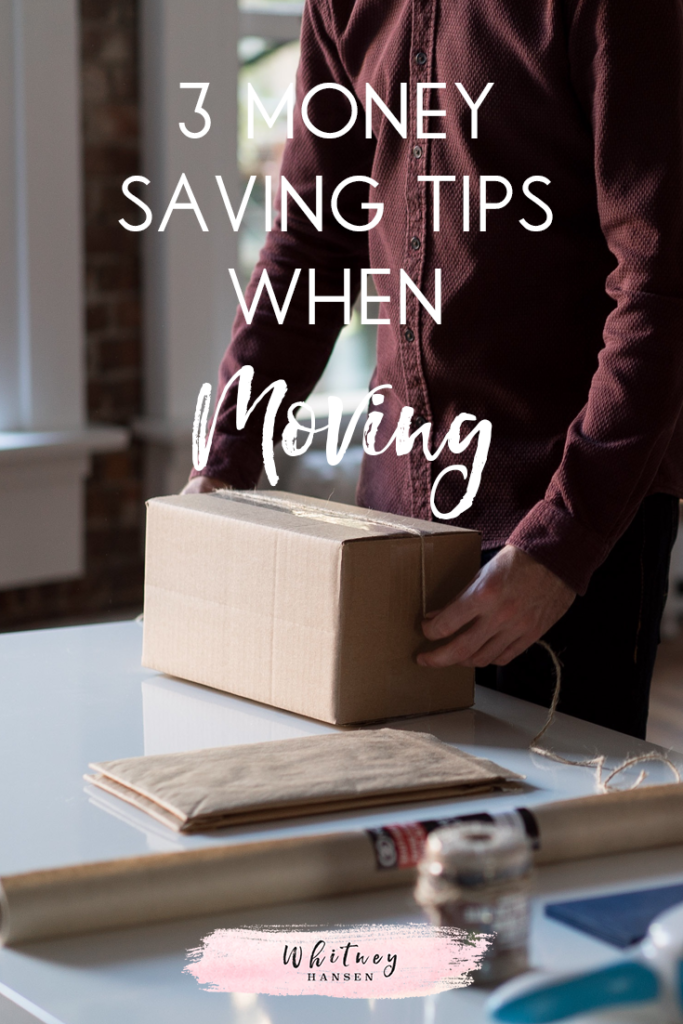Moving from one home to another is not only a time-consuming, stressful task; it can also be very expensive. If you’re a renter, you may have to pay two rents in one month, as well as deposits and other moving-related fees. Then there is the cost of moving all your stuff, replenishing your pantry, and replacing items you had to discard or leave behind. Add this to the likelihood that you’ll probably end up eating out a couple more times than usual while you’re in transition and your kitchen is packed up, and you can see how moving costs grow quickly.
When you read articles about saving money, you find a lot of generic advice based on outdated spending habits. Negotiate your cable bill. Cut your home-phone line. Most millennials have never purchased a home phone line in the first place, and use the internet for their entertainment needs instead of cable. Below are some moving-specific money-saving tips that take millennial spending habits into consideration:
Choose Packing Materials Carefully
Millennials are often pretty resourceful, so you probably know you can often obtain free boxes at fast food restaurants, department stores, and on Craigslist. But you do want to make sure to get sturdy boxes that won’t tear easily. Even if you have to pay a little for your packing containers, it will likely be a lower expense than replacing damaged possessions. This packing tip video explains other materials you should avoid when moving.
Make sure you don’t fall into the trap of rushing the packing process at the expense of stability. Anything that is remotely breakable should be surrounded by paper or cloth, and packed in such a way to prevent jostling. Taking a little extra time will save you the cost of replacing broken items and the pain of losing fragile possessions.
 Avoid Fees
Avoid Fees
If you’re moving out of a rental, you’ll want to painstakingly examine the requirements for getting your deposit back. Usually, this involves making sure the apartment is empty and relatively clean. Some landlords require extensive cleaning though, and have hoops for you to jump through to receive your deposit. You’ll also want to be present for any inspections, to make sure they don’t tack on repair fees that aren’t valid.
Double check your check-out dates to make sure you don’t get fined for being in your old residence too long. Check with your new place to make sure you don’t have to pay for expedited service once you’re ready to move in, or worse, have to stay in a hotel room while your new home is still being prepared. Plan out transition dates with all of your utility companies as well. Even calling over a month in advance could be beneficial. Be sure to confirm all dates in email form so you have a paper trail.
Don’t Move Unnecessary Items
Certain items aren’t worth the space they take up in your moving vehicle. This includes gifts you’ve only kept out of guilt, “unitask” kitchen appliances you never use, and dingy, ripped clothing you’ve been putting off throwing out. If you’re utilizing a moving service, they may not allow you to bring fire hazards like candles. Check out these other items to trash before you move. After all, the less you move, the less time and money you have to spend relocating possessions.
Moving is a great time to downsize in general. This gives you a reason to go through everything you own and briefly analyze whether you really need it and if it brings you joy. Just be sure that when you’re downsizing, you donate and gift items first and only toss actual garbage. Be aware of items that you can’t throw in dumpsters, like chemicals and large furniture.
These are just a few of the ways that millennials can save money during a move. Do you have any money-saving moving tips? Share in the comments below!
About the Author
Jeriann Watkins spent her college years moving back and forth between Portland, Oregon and Nampa, Idaho every six months. She’s learned a thing or two about moving. You can check out her other writing at her blog, dairyairhead.com

I like the recommendation to avoid moving necessary items. It makes sense that leaving everything that you can’t bring with you could be helpful to reduce the load you bring. it’s something I’ll have to remember because a dumpster would be very helpful to get rid of all the trash and unnecessary items that I don’t want.
I agree. It’s a great, and simple, recommendation! Thanks for stopping by. 🙂